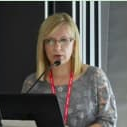Emerging Research and Challenges in Nursing and Midwifery Education
A special issue of International Journal of Environmental Research and Public Health (ISSN 1660-4601). This special issue belongs to the section "Nursing".
Deadline for manuscript submissions: closed (31 March 2023) | Viewed by 33069
Special Issue Editors
Interests: nursing care; nursing ethics; nursing education; health promotion and health education
Special Issues, Collections and Topics in MDPI journals
Interests: nursing education; nursing management
Special Issues, Collections and Topics in MDPI journals
Interests: midwifery; neonatology; gynecological care, midwifery education; health promotion and health education
Special Issue Information
Dear Colleagues,
The main purpose of this Special Issue is to present scientific evidence regarding new frontiers in nursing/midwifery education, as well as the main challenges faced by nursing/midwifery students, teachers, clinical mentors and education organizers, especially those during the COVID-19 pandemic. During the pandemic, nurses and midwives have proved once again that they are competent health care personnel, without whom the system cannot function and/or manage the emerging challenges. Additionally, the pandemic has shown that we need a new perspective on the education of the health care members to respond to similar epidemiological crises and other health care challenges in the future.
This Special Issue of the International Journal of Environmental and Public Health on “New Frontiers and Challenges in Nursing and Midwifery Education” has been created to be an international and interdisciplinary forum for the dissemination of research results regarding directions of progress in nursing/midwifery education. We welcome papers related, but not limited to simulation in nursing/midwifery education; mentorship in nursing/midwifery education; nursing/midwifery competences; innovative strategies and methods of professional nursing/midwifery education; modifications in nursing/midwifery curricula; international mobility of students and teachers; ethical aspects in nursing/midwifery education; the structure and role of clinical learning environment, and finally, challenges in clinical training of nurses/midwives in the COVID-19 pandemic and what we have learnt from this pandemic for the development of nursing/midwifery education in the future.
Manuscripts may cover any aspect of nursing/midwifery education at undergraduate and postgraduate level (including master’s degrees and doctoral studies). Research may be quantitative, qualitative, or mixed-methods research, or reviews that meet established review standards, and data may be from primary or secondary sources.
Dr. Beata Dobrowolska
Prof. Dr. Alvisa Palese
Dr. Anna Pilewska-Kozak
Guest Editors
Manuscript Submission Information
Manuscripts should be submitted online at www.mdpi.com by registering and logging in to this website. Once you are registered, click here to go to the submission form. Manuscripts can be submitted until the deadline. All submissions that pass pre-check are peer-reviewed. Accepted papers will be published continuously in the journal (as soon as accepted) and will be listed together on the special issue website. Research articles, review articles as well as short communications are invited. For planned papers, a title and short abstract (about 250 words) can be sent to the Editorial Office for assessment.
Submitted manuscripts should not have been published previously, nor be under consideration for publication elsewhere (except conference proceedings papers). All manuscripts are thoroughly refereed through a single-blind peer-review process. A guide for authors and other relevant information for submission of manuscripts is available on the Instructions for Authors page. International Journal of Environmental Research and Public Health is an international peer-reviewed open access monthly journal published by MDPI.
Please visit the Instructions for Authors page before submitting a manuscript. The Article Processing Charge (APC) for publication in this open access journal is 2500 CHF (Swiss Francs). Submitted papers should be well formatted and use good English. Authors may use MDPI's English editing service prior to publication or during author revisions.
Keywords
- nursing education
- midwifery education
- nursing students
- midwifery students
- clinical mentors
- clinical learning environment
- teaching–learning process
Benefits of Publishing in a Special Issue
- Ease of navigation: Grouping papers by topic helps scholars navigate broad scope journals more efficiently.
- Greater discoverability: Special Issues support the reach and impact of scientific research. Articles in Special Issues are more discoverable and cited more frequently.
- Expansion of research network: Special Issues facilitate connections among authors, fostering scientific collaborations.
- External promotion: Articles in Special Issues are often promoted through the journal's social media, increasing their visibility.
- Reprint: MDPI Books provides the opportunity to republish successful Special Issues in book format, both online and in print.
Further information on MDPI's Special Issue policies can be found here.







